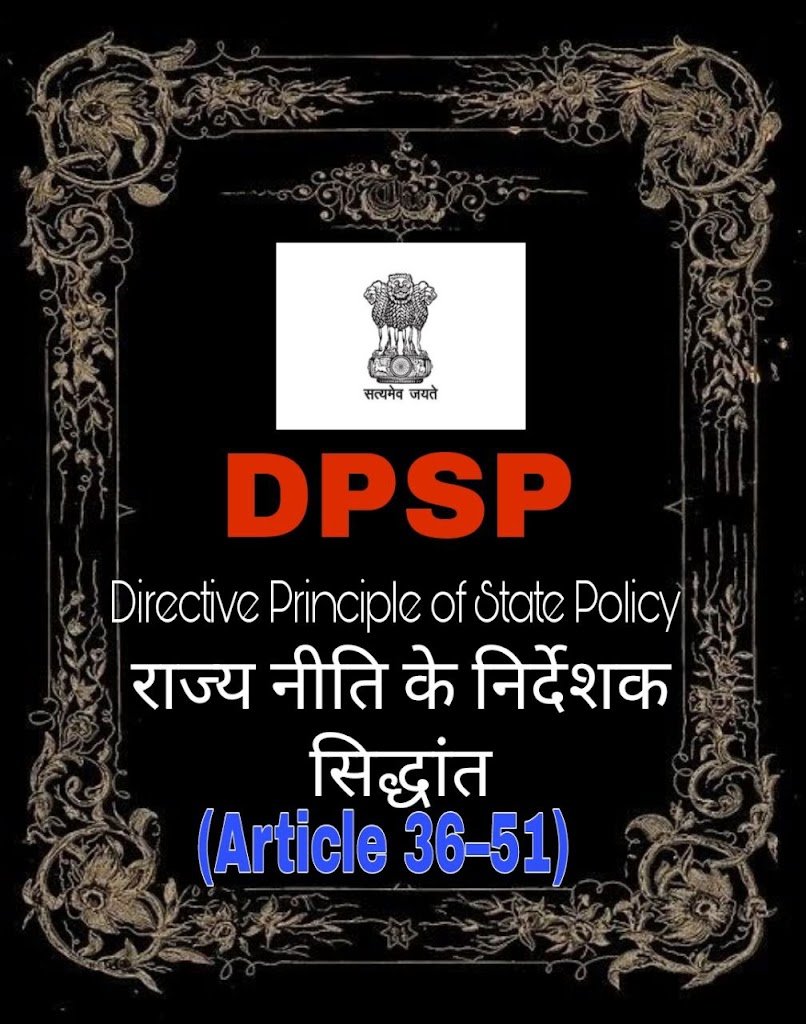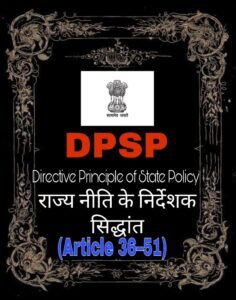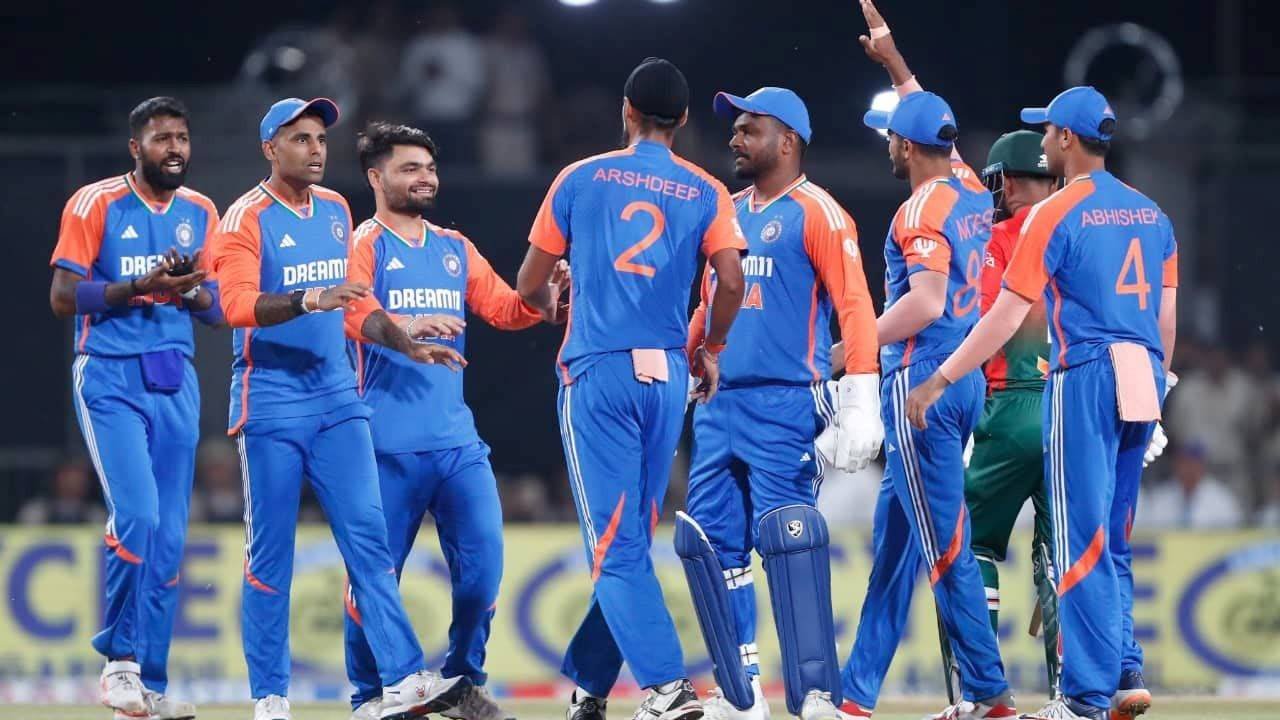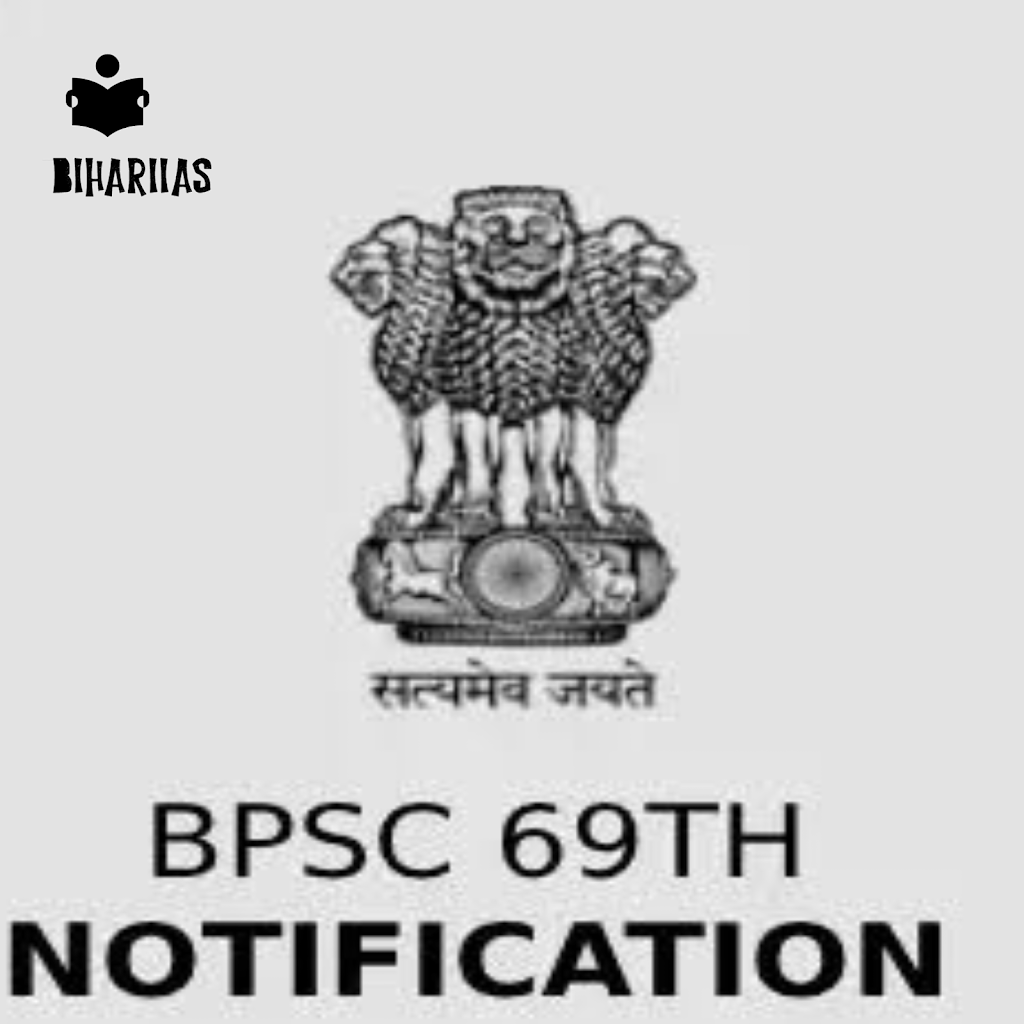
◇राज्य नीति के निर्देशक सिद्धांत (Directive Principles of State Policy- DPSP) का उद्देश्य जनता के लिये सामाजिक-आर्थिक न्याय सुनिश्चित करना और भारत को एक कल्याणकारी राज्य के रूप में स्थापित करना है।
The makers of the Indian Constitution were aware of the fact that an independent India would have to face many challenges. After almost 200 years of colonial rule, the country was left with widespread poverty, hunger and deep socio-economic inequalities.
The framers of the Constitution felt that to deal with these problems, specific policy directions, guidelines or instructions were necessary for the governance of the country.
What are Directive Principles of State Policy (DPSP)?
●Constitutional Provisions:
The DPSP is included in Part IV (Articles 36-51) of the Constitution of India.
Article 37 of the Indian Constitution deals with the application of the Directive Principles.
■Background:
The Directive Principles enshrined in the Indian Constitution have been taken from the Irish Constitution. Although the Irish themselves took the idea from the Spanish constitution.
The idea of such policies can be traced back to the Declaration of Human Rights and the declarations of independence by the American colonies, as well as the Gandhian concept of Sarvodaya.
Similar guidelines were provided as a means of instruction in the Government of India Act of 1935.
■Objective:
Checks and Balances: Legislatures and officials are expected to exercise their powers in accordance with the DPSP. Therefore, the Directive Principles are the ideals, especially with the aim of socio-economic justice, that the Indian state should strive for according to the framers of the Constitution.
They set a code of conduct for the legislatures, officers and administrators of India to discharge their responsibilities in accordance with these ideas.
Legal Actions and Government Policies: The Directive Principles incorporate the aspirations and ideals of the people that the central and state governments should keep in mind while formulating laws and policies.
Philosophy of Social Justice: The Directive Principles are the life-giving provisions of the Constitution. They represent the philosophy of social justice enshrined in the Constitution of India, although they are not legally binding by any court, yet they provide fundamental concepts for governance in the country.
What are the Different Directive Principles?
Directive Principles are classified on the basis of their conceptual source and objectives:
☆1. Based on socialist principles:
Article 38: The State shall endeavor to promote the welfare of the people by securing and protecting social order by ensuring social, economic and political justice and by reducing inequalities in income, status, facilities and opportunities.
Article 39: The State shall in particular direct its policies towards securing
Right of all citizens to adequate means of livelihood
The ownership and control of material resources shall be arranged in such a way that they can be used for the common good.
The state should avoid the concentration of wealth in a few hands
equal pay for equal work for both men and women
Safety of workers power and health
childhood and adolescence should not be exploited
Article 41: It talks about securing the right to work, to education and to public assistance in case of unemployment, old age, sickness and disability.
Article 42: The State shall make provision for securing just and humane conditions of work and for maternity relief.
Article 43: The State shall endeavor to secure to all workers a living wage and a reasonable standard of living
Article 43A: The state shall take steps to ensure the participation of workers in the management of industries
Article 47: To raise the level of nutrition and the standard of living of the people for the improvement of public health
☆2. Based on Gandhian principles:
Article 40: The State shall take steps to organize village panchayats as units of self-government.
Article 43: The State shall endeavor to promote cottage industries in rural areas on individual or co-operative basis.
Article 43B: It focuses on promoting voluntary formation, autonomous functioning, democratic control and professional management of cooperatives.
Article 46: The State shall promote the educational and economic interests of the weaker sections of the people, in particular the Scheduled Castes (SC), Scheduled Tribes (ST) and other weaker sections.
Article 47: The State shall take steps to improve the public health and in the meantime prohibit the consumption of intoxicating drinks and drugs which are injurious to health.
Article 48: Will try to stop the slaughter of cows, calves and other milch animals and to improve their breeds.
☆3. Based on liberal intellectual principles:
Article 44: The State shall endeavor to secure for the citizens a uniform civil code throughout the territory of India.
Article 45: It focuses on providing early childhood care and education to all children until they complete the age of six years.
Article 48: It focuses on organizing agriculture and animal husbandry on modern and scientific lines.
Article 48A: It aims at protecting and improving the environment and safeguarding the forests and wild life of the country.
Article 49: The State shall protect/protect every monument, artistically important or historical place.
Article 50: The State shall take steps to separate the judiciary from the executive in the public services of the State.
Article 51: The State declares that the State shall endeavor to establish international peace and security,
Maintain fair and honorable relations with nations.
Promote respect for international law and treaty obligations.
Encourage settlement of international disputes by arbitration.
What are the related constitutional amendments?
Amendment to the DPSP requires a constitutional amendment and has to be passed by a special majority of both the Houses of Parliament. There have been many amendments to the constitution after independence and some of them are related to these directives.
42nd Amendment of the year 1976: It made some changes in Part IV of the Constitution by adding new instructions, which include:
Article 39A: Providing free legal aid to the poor
Article 43A: For the participation of workers in the management of industries
Article 48A: Efforts to protect and improve the environment.
44th Amendment of the year 1978: It inserted section 2 in Article 38 which declares that the State shall endeavor to reduce economic inequalities, particularly in income and status, facilities and opportunities, not only between individuals but also between groups Will eliminate inequalities in
It also removed the right to property from the list of fundamental rights.
86th Amendment Act of 2002: It changed the contents of Article 45 and made elementary education a fundamental right under Article 21A.
What is the difference between Fundamental Rights and DPSP?
Both Fundamental Rights (FRs) and Directive Principles are essential features of the Indian Constitution, but there has been a constant conflict between them for a long time.
FRs are legally binding but DPSPs are not legally binding, that means a person, if his FRs are violated, can appeal in court but if the government does not implement the Directive Principles, people Can’t appeal in court.
FRs are negative or prohibitive in nature as they place restrictions on the State, in contrast to Directive Principles, they are positive as they declare the duty of the State to achieve certain social and economic objectives.
The FRs established liberal political democracy in India though the Directive Principles make India a welfare state.
FRs protect the interests of the individual while DPSP seeks to promote socio-economic equality and provide protection to the weaker sections of the society in particular.
What are the various judgments related to DPSP and FRs?
There has been a long standing debate as to which of the two classes of constitutional provisions should be given priority in case of conflict between FRs and Directive Principles. The relationship between fundamental rights and DPSP is decoded with the help of four court judgements.
भारतीय संविधान के निर्माता इस तथ्य से अवगत थे कि एक स्वतंत्र भारत को कई चुनौतियों का सामना करना पड़ेगा। लगभग 200 वर्षों के औपनिवेशिक शासन के बाद, देश व्यापक गरीबी, भुखमरी और गहरी सामाजिक-आर्थिक असमानताओं से बचा हुआ था।
संविधान निर्माताओं ने महसूस किया कि इन समस्याओं से निपटने के लिए देश के शासन के लिए विशिष्ट नीति निर्देश, दिशानिर्देश या निर्देश आवश्यक थे।
राज्य नीति के निर्देशक सिद्धांत (डीपीएसपी) क्या हैं?
●संवैधानिक प्रावधान:
DPSP भारत के संविधान के भाग IV (अनुच्छेद 36-51) में शामिल है।
भारतीय संविधान का अनुच्छेद 37 निर्देशक सिद्धांतों के अनुप्रयोग से संबंधित है।
■पृष्ठभूमि:
भारतीय संविधान में प्रतिष्ठापित निर्देशक सिद्धांत आयरलैंड के संविधान से लिए गए हैं। हालाँकि आयरिश ने स्वयं स्पेनिश संविधान से विचार लिया था।
ऐसी नीतियों के विचार को मानवाधिकारों की घोषणा और अमेरिकी उपनिवेशों द्वारा स्वतंत्रता की घोषणाओं के साथ-साथ सर्वोदय की गांधीवादी अवधारणा के रूप में देखा जा सकता है।
1935 के भारत सरकार अधिनियम में शिक्षा के साधन के रूप में समान दिशा-निर्देश प्रदान किए गए थे।
■उद्देश्य:
नियंत्रण और संतुलन: विधानमंडलों और अधिकारियों से अपेक्षा की जाती है कि वे DPSP के अनुसार अपनी शक्तियों का प्रयोग करें। इसलिए, निर्देशक सिद्धांत आदर्श हैं, विशेष रूप से सामाजिक-आर्थिक न्याय के उद्देश्य से, कि भारतीय राज्य को संविधान के निर्माताओं के अनुसार प्रयास करना चाहिए।
वे इन विचारों के अनुसार अपने उत्तरदायित्वों का निर्वहन करने के लिए भारत के विधायिकाओं, अधिकारियों और प्रशासकों के लिए एक आचार संहिता निर्धारित करते हैं।
कानूनी कार्रवाइयां और सरकारी नीतियां: निर्देशक सिद्धांतों में लोगों की आकांक्षाओं और आदर्शों को शामिल किया गया है, जिन्हें कानून और नीतियां बनाते समय केंद्र और राज्य सरकारों को ध्यान में रखना चाहिए।
सामाजिक न्याय का दर्शन: निर्देशक सिद्धांत संविधान के जीवनदायी प्रावधान हैं। वे भारत के संविधान में निहित सामाजिक न्याय के दर्शन का प्रतिनिधित्व करते हैं, हालांकि वे किसी भी अदालत द्वारा कानूनी रूप से बाध्यकारी नहीं हैं, फिर भी वे देश में शासन के लिए मौलिक अवधारणा प्रदान करते हैं।
विभिन्न निर्देशक सिद्धांत क्या हैं?
निर्देशक सिद्धांतों को उनके वैचारिक स्रोत और उद्देश्यों के आधार पर वर्गीकृत किया गया है:
☆1. समाजवादी सिद्धांतों पर आधारित:
अनुच्छेद 38: राज्य सामाजिक, आर्थिक और राजनीतिक न्याय सुनिश्चित करके और आय, स्थिति, सुविधाओं और अवसरों में असमानताओं को कम करके सामाजिक व्यवस्था को सुरक्षित और संरक्षित करके लोगों के कल्याण को बढ़ावा देने का प्रयास करेगा।
अनुच्छेद 39: राज्य विशेष रूप से अपनी नीतियों को सुरक्षित करने की दिशा में निर्देशित करेगा
आजीविका के पर्याप्त साधनों के लिए सभी नागरिकों का अधिकार
भौतिक संसाधनों के स्वामित्व और नियंत्रण को इस तरह से व्यवस्थित किया जाएगा कि उनका उपयोग सामान्य भलाई के लिए किया जा सके।
राज्य को कुछ हाथों में धन के संकेन्द्रण से बचना चाहिए
पुरुषों और महिलाओं दोनों के लिए समान काम के लिए समान वेतन
श्रमिकों की शक्ति और स्वास्थ्य की सुरक्षा
बचपन और किशोरावस्था का शोषण नहीं करना चाहिए
अनुच्छेद 41: यह काम करने, शिक्षा पाने और बेरोजगारी, बुढ़ापा, बीमारी और विकलांगता के मामले में सार्वजनिक सहायता के अधिकार को सुरक्षित करने के बारे में बात करता है।
अनुच्छेद 42: राज्य काम की उचित और मानवीय स्थितियों को सुरक्षित करने और मातृत्व राहत के लिए प्रावधान करेगा।
अनुच्छेद 43: राज्य सभी श्रमिकों के लिए निर्वाह मजदूरी और उचित जीवन स्तर सुनिश्चित करने का प्रयास करेगा
अनुच्छेद 43ए: राज्य उद्योगों के प्रबंधन में श्रमिकों की भागीदारी सुनिश्चित करने के लिए कदम उठाएगा
अनुच्छेद 47: सार्वजनिक स्वास्थ्य में सुधार के लिए पोषण के स्तर और लोगों के जीवन स्तर को ऊपर उठाना
☆2. गांधीवादी सिद्धांतों पर आधारित:
अनुच्छेद 40: राज्य ग्राम पंचायतों को स्वशासन की इकाइयों के रूप में संगठित करने के लिए कदम उठाएगा।
अनुच्छेद 43: राज्य व्यक्तिगत या सहकारी आधार पर ग्रामीण क्षेत्रों में कुटीर उद्योगों को बढ़ावा देने का प्रयास करेगा।
अनुच्छेद 43बी: यह सहकारी समितियों के स्वैच्छिक गठन, स्वायत्त कामकाज, लोकतांत्रिक नियंत्रण और पेशेवर प्रबंधन को बढ़ावा देने पर केंद्रित है।
अनुच्छेद 46: राज्य लोगों के कमजोर वर्गों, विशेष रूप से अनुसूचित जाति (एससी), अनुसूचित जनजाति (एसटी) और अन्य कमजोर वर्गों के शैक्षिक और आर्थिक हितों को बढ़ावा देगा।
अनुच्छेद 47: राज्य सार्वजनिक स्वास्थ्य में सुधार के लिए कदम उठाएगा और इस बीच नशीले पेय और स्वास्थ्य के लिए हानिकारक दवाओं के सेवन पर रोक लगाएगा।
अनुच्छेद 48: गायों, बछड़ों और अन्य दुधारू पशुओं के वध को रोकने और उनकी नस्लों में सुधार करने का प्रयास करेंगे।
☆3. उदार बौद्धिक सिद्धांतों पर आधारित:
अनुच्छेद 44: राज्य भारत के पूरे क्षेत्र में नागरिकों के लिए एक समान नागरिक संहिता सुरक्षित करने का प्रयास करेगा।
अनुच्छेद 45: यह छह वर्ष की आयु पूरी करने तक सभी बच्चों को प्रारंभिक बचपन की देखभाल और शिक्षा प्रदान करने पर केंद्रित है।
अनुच्छेद 48: यह आधुनिक और वैज्ञानिक तर्ज पर कृषि और पशुपालन को व्यवस्थित करने पर केंद्रित है।
अनुच्छेद 48A: इसका उद्देश्य पर्यावरण की रक्षा और सुधार करना और देश के वनों और वन्य जीवन की रक्षा करना है।
अनुच्छेद 49: राज्य प्रत्येक स्मारक, कलात्मक रूप से महत्वपूर्ण या ऐतिहासिक स्थान की रक्षा/संरक्षण करेगा।
अनुच्छेद 50: राज्य राज्य की सार्वजनिक सेवाओं में न्यायपालिका को कार्यपालिका से अलग करने के लिए कदम उठाएगा।
अनुच्छेद 51: राज्य घोषित करता है कि राज्य अंतरराष्ट्रीय शांति और सुरक्षा स्थापित करने का प्रयास करेगा,
राष्ट्रों के साथ निष्पक्ष और सम्मानजनक संबंध बनाए रखें।
अंतर्राष्ट्रीय कानून और संधि दायित्वों के प्रति सम्मान को बढ़ावा देना।
मध्यस्थता द्वारा अंतरराष्ट्रीय विवादों के निपटारे को प्रोत्साहित करें।
संबंधित संवैधानिक संशोधन क्या हैं?
DPSP में संशोधन के लिए एक संवैधानिक संशोधन की आवश्यकता होती है और इसे संसद के दोनों सदनों के विशेष बहुमत से पारित किया जाना चाहिए। आजादी के बाद संविधान में कई संशोधन हुए हैं और उनमें से कुछ इन निर्देशों से संबंधित हैं।
वर्ष 1976 का 42वाँ संशोधन: इसमें नए निर्देश जोड़कर संविधान के भाग IV में कुछ बदलाव किए गए, जिनमें शामिल हैं:
अनुच्छेद 39A: गरीबों को मुफ्त कानूनी सहायता प्रदान करना
अनुच्छेद 43ए उद्योगों के प्रबंधन में श्रमिकों की भागीदारी के लिए
अनुच्छेद 48A: पर्यावरण की रक्षा और सुधार के प्रयास।
वर्ष 1978 का 44वां संशोधन: इसने अनुच्छेद 38 में धारा 2 को सम्मिलित किया जो यह घोषणा करता है कि राज्य आर्थिक असमानताओं को कम करने का प्रयास करेगा, विशेष रूप से आय और स्थिति, सुविधाओं और अवसरों में, न केवल व्यक्तियों के बीच बल्कि समूहों के बीच भी असमानताओं को समाप्त करेगा
इसने मौलिक अधिकारों की सूची से संपत्ति के अधिकार को भी हटा दिया।
2002 का 86वाँ संशोधन अधिनियम: इसने अनुच्छेद 45 की सामग्री को बदल दिया और प्रारंभिक शिक्षा को अनुच्छेद 21A के तहत एक मौलिक अधिकार बना दिया।
मौलिक अधिकार और DPSP में क्या अंतर है?
मौलिक अधिकार (FRs) और निर्देशक सिद्धांत दोनों भारतीय संविधान की आवश्यक विशेषताएं हैं, लेकिन लंबे समय से उनके बीच लगातार संघर्ष होता रहा है।
एफआर कानूनी रूप से बाध्यकारी हैं लेकिन डीपीएसपी कानूनी रूप से बाध्यकारी नहीं हैं, इसका मतलब है कि एक व्यक्ति, यदि उसकी एफआर का उल्लंघन किया जाता है, तो वह अदालत में अपील कर सकता है, लेकिन अगर सरकार निर्देशक सिद्धांतों को लागू नहीं करती है, तो लोग अदालत में अपील नहीं कर सकते हैं।
एफआर प्रकृति में नकारात्मक या निषेधात्मक हैं क्योंकि वे राज्य पर प्रतिबंध लगाते हैं, निर्देशक सिद्धांतों के विपरीत, वे सकारात्मक हैं क्योंकि वे कुछ सामाजिक और आर्थिक उद्देश्यों को प्राप्त करने के लिए राज्य के कर्तव्य की घोषणा करते हैं।
एफआर ने भारत में उदार राजनीतिक लोकतंत्र की स्थापना की, हालांकि निर्देशक सिद्धांत भारत को एक कल्याणकारी राज्य बनाते हैं।
FRs व्यक्ति के हितों की रक्षा करते हैं जबकि DPSP सामाजिक-आर्थिक समानता को बढ़ावा देना चाहता है और विशेष रूप से समाज के कमजोर वर्गों को सुरक्षा प्रदान करता है।
डीपीएसपी और एफआर से संबंधित विभिन्न निर्णय क्या हैं?
लंबे समय से इस बात पर बहस चल रही है कि एफआर और निर्देशक सिद्धांतों के बीच संघर्ष के मामले में संवैधानिक प्रावधानों के दो वर्गों में से किसे प्राथमिकता दी जानी चाहिए। मौलिक अधिकारों और डीपीएसपी के बीच संबंध को चार अदालती फैसलों की मदद से डिकोड किया गया है।
■Champakam Dorayarajan v. State of Madras (1951):
In this case the Supreme Court ruled that in case of any conflict between the FRs and the Directive Principles, the FRs shall prevail. It declared that the Directive Principles are to be followed and run as an adjunct to the FRs.
It also ruled that the Fundamental Rights can be amended by the Parliament by enacting Constitutional Amendment Acts.
■ Golaknath Vs. State of Punjab (1967):
In this case, the Supreme Court declared that FRs cannot be amended by Parliament even for the implementation of Directive Principles.
Kesavananda Bharati vs. State of Kerala (1973):
The Supreme Court declared that the Parliament can amend any part of the Constitution but it cannot change its basic structure, thus removing the right to property from the list of fundamental rights.
■Minerva Mills Vs Union of India (1980):
In this case, the Supreme Court reiterated that the Parliament can amend any part of the Constitution but it cannot change the basic structure of the Indian Constitution.
◇◇What are the Acts and amendments related to DPSP?◇◇
● Land Reforms: Almost all the states have passed land reform laws to bring changes in the agrarian society and to improve the conditions of the rural people. These measures include:
Elimination of middlemen like zamindars, jagirdars, inamdars etc.
Tenancy reforms like security of tenure, fair rent etc.
Imposition of ceiling on land holdings
Distribution of surplus land among landless laborers
cooperative farming
● Labor Reforms: The following Acts were enacted to protect the interests of the working class of the society.
● Minimum Wages Act (1948), ● Code on Wages, 2020
● Contract Labor Regulation and Abolition Act (1970)
● Child Labor Prohibition and Regulation Act (1986)
In class 2016, it was renamed as the Child and Adolescent Labor Prohibition and Regulation Act, 1986.
● Bonded Labor System Abolition Act (1976)
Mines and Minerals (Development and Regulation) Act, 1957
● Maternity Benefit Act (1961) and Equal Remuneration Act (1976) have been enacted to protect the interests of women workers.
■Panchayati Raj System: Through the 73rd Constitutional Amendment Act, 1992, the government fulfilled the constitutional obligations mentioned in Article 40.
A three-tier ‘Panchayati Raj System’ was introduced at the village, block and district levels in almost all parts of the country.
Cottage Industries: In order to promote cottage industries as per Article 43, the government has set up several boards like Village Industries Board, Khadi and Village Industries Commission, All India Handicrafts Board, Silk Board, Coir Board etc. provide necessary assistance.
■ Education: The government has implemented the provisions related to free and compulsory education given in Article 45.
● Introduced by the 86th Constitutional Amendment and later passed the Right to Education Act, 2009, elementary education has been accepted as a fundamental right of every child in the age group of 6 to 14 years.
Rural Area Development: Programs like Community Development Program (1952), Integrated Rural Development Program (1978-79) and Mahatma Gandhi National Rural Employment Guarantee Act (MNREGA-2006) are aimed at raising the standard of living especially in rural areas. were started for As specified in Article 47 of the Constitution.
●Health: Centrally sponsored schemes like Pradhan Mantri Gram Swasthya Yojana (PMGSY) and National Rural Health Mission (NRHM) are being implemented to fulfill the social sector responsibility of the Indian state.
● Environment: The Wildlife (Protection) Act, 1972, the Forest (Protection) Act, 1980 and the Environment (Protection) Act, 1986 have been enacted for the protection of wildlife and forests respectively.
● The Water and Air Pollution Control Acts have provided for the establishment of the Central Pollution Control Board.
■चंपकम दोरायराजन बनाम मद्रास राज्य (1951):
इस मामले में सुप्रीम कोर्ट ने फैसला सुनाया कि एफआर और निर्देशक सिद्धांतों के बीच किसी भी तरह के विवाद की स्थिति में एफआर प्रबल होगी। इसने घोषणा की कि निदेशक सिद्धांतों का पालन किया जाना चाहिए और एफआर के सहायक के रूप में चलाया जाना चाहिए।
इसने यह भी फैसला सुनाया कि संवैधानिक संशोधन अधिनियमों को लागू करके मौलिक अधिकारों को संसद द्वारा संशोधित किया जा सकता है।
■ गोलकनाथ बनाम. पंजाब राज्य (1967):
इस मामले में, सर्वोच्च न्यायालय ने घोषित किया कि निदेशक सिद्धांतों के कार्यान्वयन के लिए भी संसद द्वारा एफआर में संशोधन नहीं किया जा सकता है।
केशवानंद भारती बनाम केरल राज्य (1973):
सर्वोच्च न्यायालय ने घोषणा की कि संसद संविधान के किसी भी हिस्से में संशोधन कर सकती है लेकिन यह इसकी मूल संरचना को नहीं बदल सकती है, इस प्रकार संपत्ति के अधिकार को मौलिक अधिकारों की सूची से हटा दिया गया है।
मिनर्वा मिल्स बनाम भारत संघ (1980):
इस मामले में, सुप्रीम कोर्ट ने दोहराया कि संसद संविधान के किसी भी हिस्से में संशोधन कर सकती है, लेकिन यह भारतीय संविधान की मूल संरचना को नहीं बदल सकती है।
◇◇डीपीएसपी से संबंधित अधिनियम और संशोधन क्या हैं?◇◇
● भूमि सुधार: लगभग सभी राज्यों ने कृषि प्रधान समाज में परिवर्तन लाने और ग्रामीण लोगों की स्थितियों में सुधार लाने के लिए भूमि सुधार कानून पारित किए हैं। इन उपायों में शामिल हैं:
जमींदार, जागीरदार, इनामदार आदि जैसे बिचौलियों का उन्मूलन।
किरायेदारी सुधार जैसे कार्यकाल की सुरक्षा, उचित किराया आदि।
भूमि जोतों पर अधिकतम सीमा का अधिरोपण
भूमिहीन मजदूरों के बीच अधिशेष भूमि का वितरण
सहकारी खेती
● श्रम सुधार: समाज के श्रमिक वर्ग के हितों की रक्षा के लिए निम्नलिखित अधिनियम बनाए गए।
● न्यूनतम मजदूरी अधिनियम (1948), ● मजदूरी संहिता, 2020
● अनुबंध श्रम विनियमन और उन्मूलन अधिनियम (1970)
● बाल श्रम निषेध और विनियमन अधिनियम (1986)
कक्षा 2016 में, इसका नाम बदलकर बाल और किशोर श्रम निषेध और विनियमन अधिनियम, 1986 कर दिया गया।
● बंधुआ मजदूरी प्रथा उन्मूलन अधिनियम (1976)
खान और खनिज (विकास और विनियमन) अधिनियम, 1957
● मातृत्व लाभ अधिनियम (1961) और समान पारिश्रमिक अधिनियम (1976) महिला श्रमिकों के हितों की रक्षा के लिए बनाए गए हैं।
■पंचायती राज व्यवस्था: 73वें संविधान संशोधन अधिनियम, 1992 के माध्यम से सरकार ने अनुच्छेद 40 में उल्लिखित संवैधानिक दायित्वों को पूरा किया।
देश के लगभग सभी हिस्सों में गाँव, ब्लॉक और जिला स्तरों पर त्रिस्तरीय ‘पंचायती राज व्यवस्था’ की शुरुआत की गई।
कुटीर उद्योग: अनुच्छेद 43 के अनुसार कुटीर उद्योगों को बढ़ावा देने के लिए सरकार ने ग्रामोद्योग बोर्ड, खादी और ग्रामोद्योग आयोग, अखिल भारतीय हस्तशिल्प बोर्ड, रेशम बोर्ड, कयर बोर्ड आदि जैसे कई बोर्ड स्थापित किए हैं जो आवश्यक सहायता प्रदान करते हैं।
I शिक्षा: सरकार ने अनुच्छेद 45 में दिए गए मुफ्त और अनिवार्य शिक्षा से संबंधित प्रावधानों को लागू किया है.
● 86वें संविधान संशोधन द्वारा प्रस्तुत और बाद में शिक्षा का अधिकार अधिनियम, 2009 पारित किया गया, प्रारंभिक शिक्षा को 6 से 14 वर्ष की आयु के प्रत्येक बच्चे के मौलिक अधिकार के रूप में स्वीकार किया गया है।
ग्रामीण क्षेत्र विकास: सामुदायिक विकास कार्यक्रम (1952), एकीकृत ग्रामीण विकास कार्यक्रम (1978-79) और महात्मा गांधी राष्ट्रीय ग्रामीण रोजगार गारंटी अधिनियम (मनरेगा-2006) जैसे कार्यक्रमों का उद्देश्य विशेष रूप से ग्रामीण क्षेत्रों में जीवन स्तर को ऊपर उठाना है। संविधान के अनुच्छेद 47 में निर्दिष्ट के रूप में शुरू किए गए थे।
●स्वास्थ्य: भारतीय राज्य के सामाजिक क्षेत्र की जिम्मेदारी को पूरा करने के लिए प्रधान मंत्री ग्राम स्वास्थ्य योजना (पीएमजीएसवाई) और राष्ट्रीय ग्रामीण स्वास्थ्य मिशन (एनआरएचएम) जैसी केंद्र प्रायोजित योजनाएं लागू की जा रही हैं।
● पर्यावरण: वन्यजीव (संरक्षण) अधिनियम, 1972, वन (संरक्षण) अधिनियम, 1980 और पर्यावरण (संरक्षण) अधिनियम, 1986 क्रमशः वन्यजीवों और वनों की सुरक्षा के लिए बनाए गए हैं।
● जल और वायु प्रदूषण नियंत्रण अधिनियमों ने केंद्रीय प्रदूषण नियंत्रण बोर्ड की स्थापना का प्रावधान किया है।
Source ( स्रोत) -SANSADTV
●●●●●●●●●●●●●●●●●●●●●●●●●●●●●●●BIHARI IAS ●●●●●●●●●●●●●●●●●●●●●●●●●●●●●●









